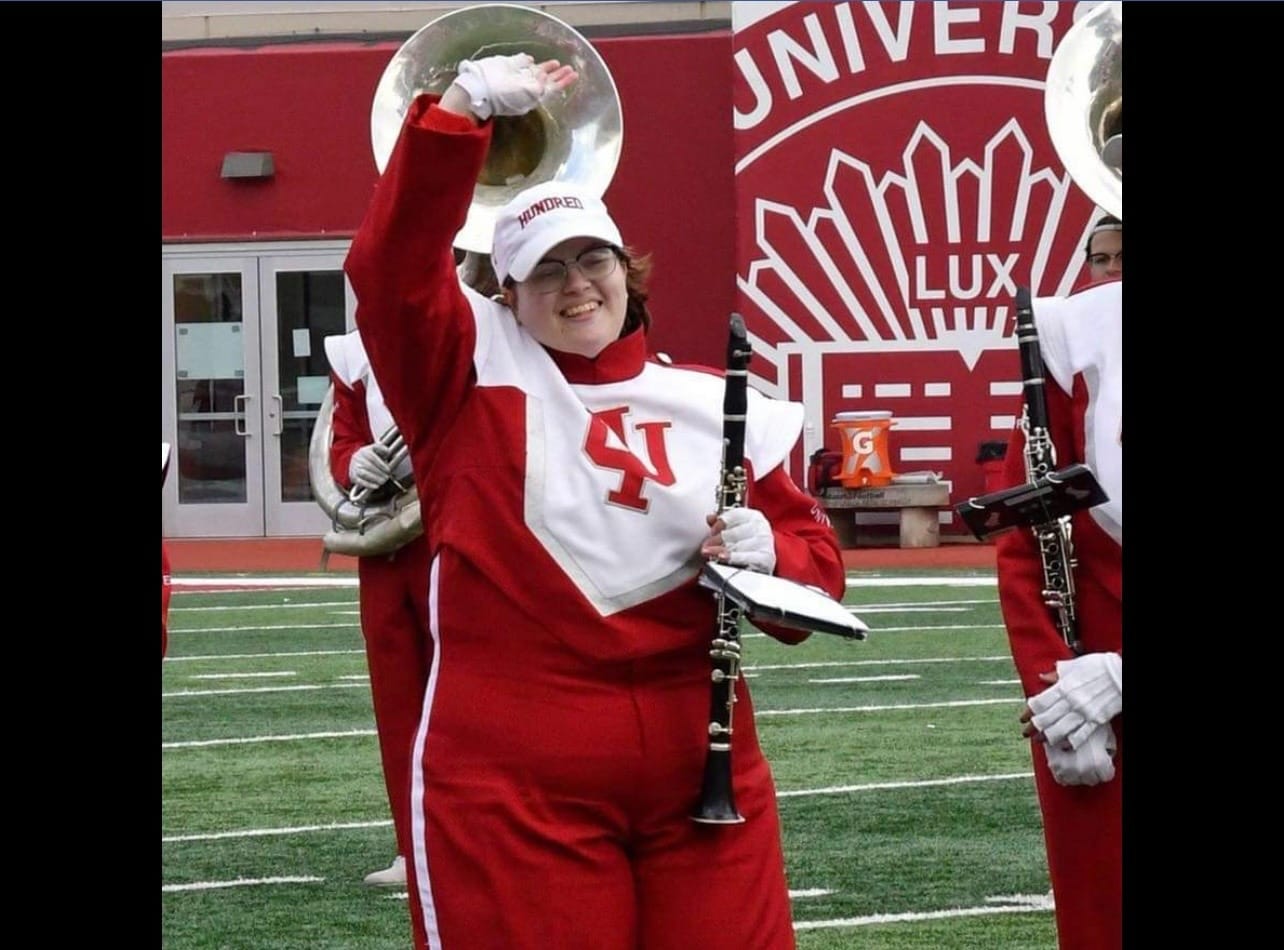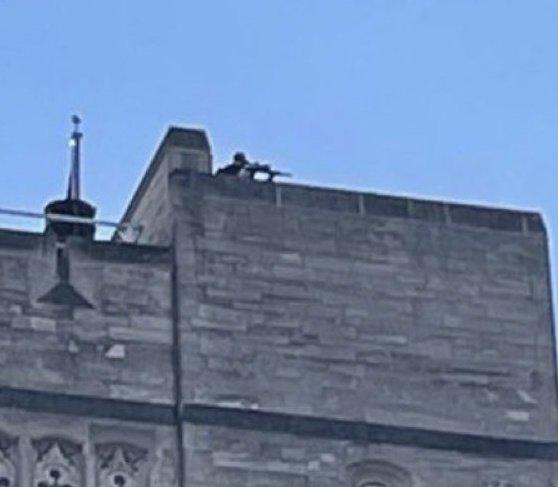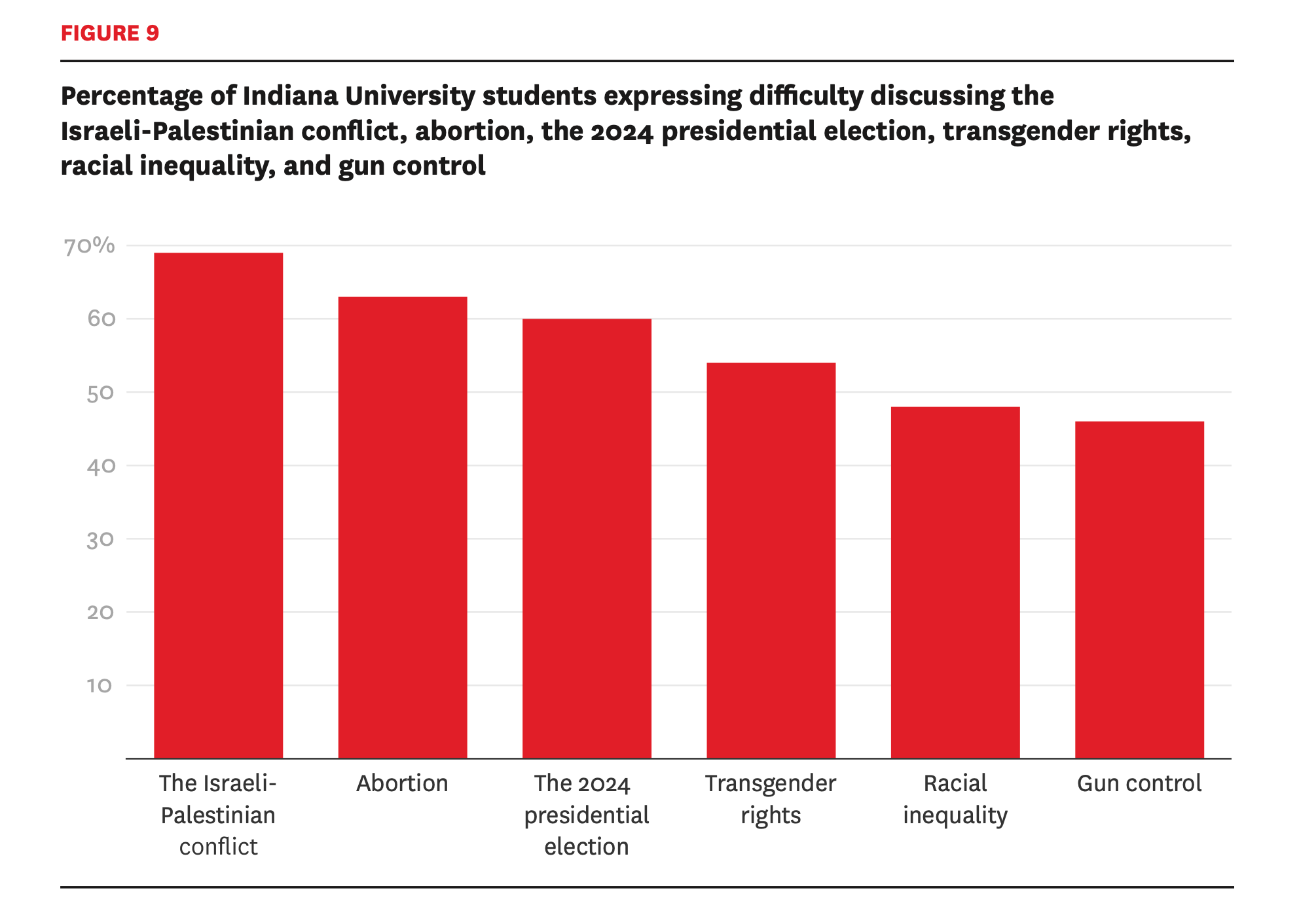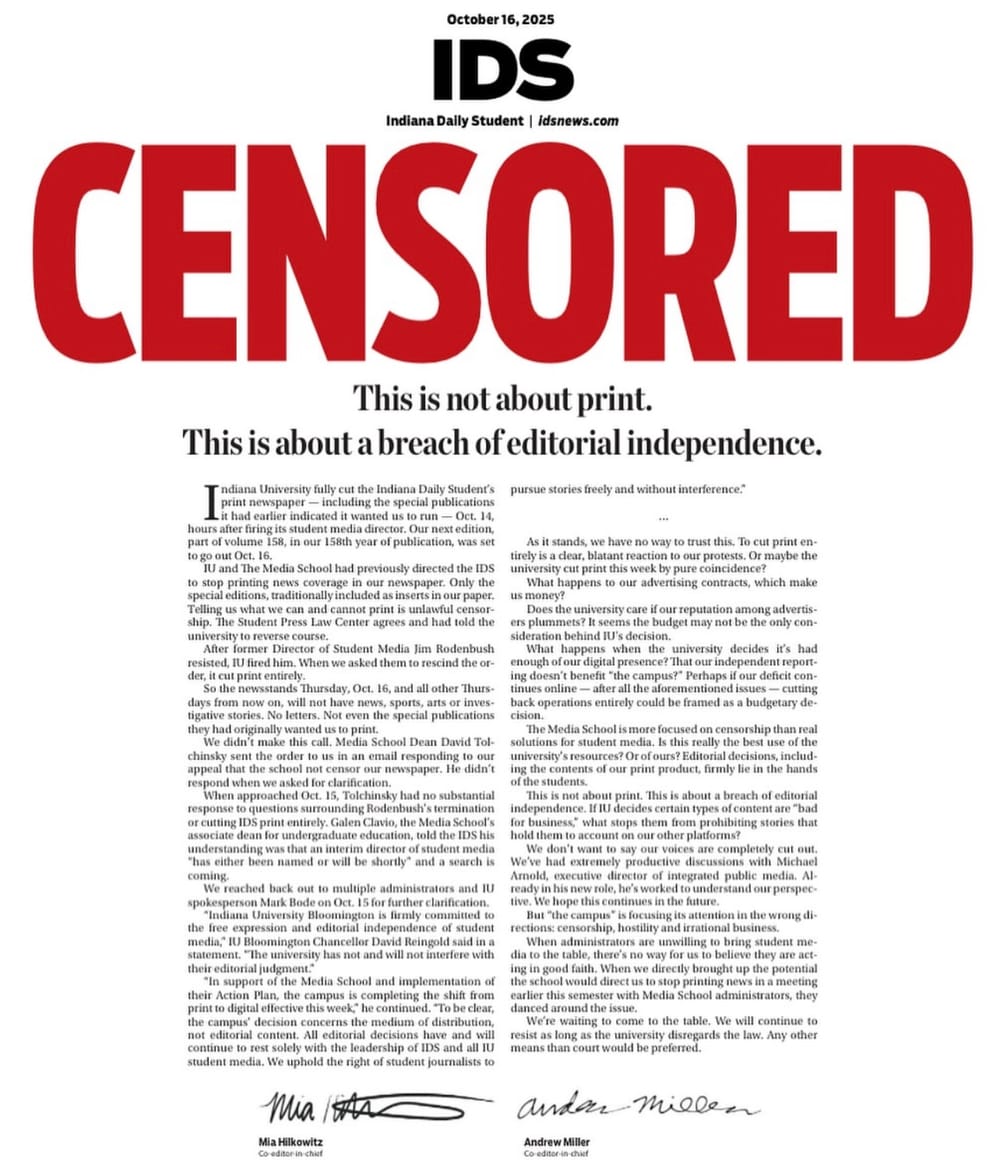What's Happening At IU Matters More Than You Think
We need public universities to maintain quality and integrity – yes, even the ones in states you dislike.
If you like what I do and want to help support this work, consider a paid subscription for just $5/month if you can afford it, or, if you’d rather provide one time support, click here.
Anyone who has ever met me knows that you probably will know me for less than five minutes before finding out that I am an alumnus of Indiana University. I first went there for undergrad where I majored in Political Science, and then decided to stay for an extra three year long encore over at the Maurer School of Law. I loved my time at IU, I really did. So much of who I am as a writer, lawyer, and activist was learned in Bloomington. I also met some of my best and closest friends there. I was deeply involved in the campus community, and spent pretty much every weekend during the school year playing clarinet at either a football or basketball game. I not only know the words to the primary alma mater “Hail to Old IU” but also “Chimes of Indiana.”

In law school I was also deeply involved, particularly in advocating for the needs of queer and disabled students, even while spending most of my time in quarantine as a result of being immunocompromised during the start of the COVID-19 pandemic, which shut the world down during spring of my 1L year. I am sure most of the administration would remember me primarily as being…annoying…but my friends and I did get things done.
I was involved in IU because I cared about it, much like I care for and advocate for change in every space I enter. And do not get me wrong, it has always had its problems. While considered relatively liberal, even prior to the Whitten administration there were major issues of white supremacy, queer-phobia, sexual assault, and other major problems on campus. Though in all fairness none of those issues are really unique to IU. But to speak of the devil, things took a clear and rapid turn for the worst when Pamela Whitten was made President of IU back in 2021. Her tenure as President has been controversial from the beginning, as documented by my former law school professor Steve Sanders. (Those of y’all who know me know that though Prof. Sanders and I disagree on a great many things, one thing we are certainly aligned on is the disaster of the Whitten administration, and his research and reporting on this topic has been invaluable.)
When Michael A. McRobbie announced his retirement, a long and arduous search for a new president began. The IU Board of Trustees could not come to a consensus amongst the first round of finalists (of which Whitten was not one of) presented by the 17 person search committee, and insisted on interviewing even more candidates as the clock began to run out. The BoT even went as far as to agree to pay McRobbie an additional $582,000 to stay on for an additional six months if they could not find a candidate – a sum they agreed to still pay him even when it wound up not being necessary, without formalizing the agreement in public. Whitten was amongst these late comers, and the process was altogether described as “strange,” with one search committee member telling Sanders “I have no comment…That ought to say a lot. If there had been a process I felt good about, I probably would comment.”
To keep the long beginning of a long story short, her appointment lacked the transparency and integrity that we should be demanding of our government funded institutions. And I want to be clear here that the following statement is pure speculation on my part, but I fully believe that she was appointed in large part because the highly conservative Indiana state government wanted a university President that would push IU, which is often considered a liberal haven in the state, further right. And that is precisely what Whitten has done.
Since her appointment, IU has been mired in public controversy surrounding the rights of basically any student that might be to the political left of Mussolini. When students began to protest the genocide in Gaza by peacefully gathering at Dunn Meadow (an open grass field on the university campus), the University’s administration altered policy on protesting in the middle of the night for the express purpose of derailing speech they did not want happening on campus, censored the exhibition of work by a Palestinian artist, and famously permitted police to post a sniper on the roof of the student union, aiming at unarmed protesters. Somewhere around 50 protesters were arrested for their involvement in the encampment, and student organizers have been suspended and lost financial aid as a consequence for expressing their beliefs.

The right to speech and protest in Bloomington has been massively curtailed, even after intervention from the courts, leading to IU being rated the worst public university for free speech and expression by the Foundation for Individual Rights and Expression, earning an entire section dedicated to its failures in the 2026 College Free Speech Rankings. Students noted that they no longer felt safe attending protests or speaking out due to fear of retaliation by the university or police violence. Speech has been significantly chilled on campus, and while there are many who would want you to believe it is conservative voices on campus being silenced, I can tell you with almost absolute certainty from experience that this is not the case IU.

And now student journalism, one of the great bulwarks against fascism is under attack at IU, though I don’t think anyone is surprised.
At the beginning of this month, the campus newspaper, the Indiana Daily Student, received a directive from the university to not include any actual news in the print edition of the newspaper that was set to run for Homecoming weekend (Oct. 17/18/19). The print edition was to only include “... nothing but information about homecoming — no other news at all, and particularly no traditional front page news coverage,” according to an email from Director of Student Media Jim Rodenbush relaying the directive to the student editorial staff from the Media School. When Rodenbush informed the Media School that he would not tell the IDS staff what they could and could not put to print, in recognition of the paper’s 158 years of editorial independence and the student media charter, the university immediately and unceremoniously fired him, stating in his termination letter: “Your lack of leadership and ability to work in alignment with the University’s direction for the Student Media Plan is unacceptable[.]”
When the IDS staff asked the university to reconsider their decision, the University further retaliated by cutting the print edition of the IDS entirely – a major source of revenue for the paper through selling advertisements. The message the university sent from these two incidents is crystal clear: comply or die.
I have no idea what was being planned for this weekend’s print edition of the IDS, and I suspect the University administration didn’t either. I think they tried to take a hardline stance to prevent the IDS from publishing anything that might make the university look even slightly bad during a weekend where the campus would be teeming with alumni (read: donors.) I think they’re also looking for an excuse to do away with student media on campus entirely, and by cutting a major source of revenue for the paper, they can claim that any future move to eliminate the IDS entirely was purely a “budgetary concern.”
This goes beyond just the IDS. This reeks of a larger effort to control and restrict the voices of young journalists preparing to enter the industry. IU’s Media School is huge and historically well respected. Its alumni base is everywhere. And nothing is more threatening to a fascist government, both on the state and federal level, than a well trained population of journalists. Journalism is the first draft of history. Good journalism holds our public officials accountable and ensures the public knows what is going on in the world around them. Great journalism speaks truth to power by holding up a mirror and asking “this is what you are doing, can you bear to look at yourself?”
This isn’t just about a student newspaper at a midwestern college. This is just one small piece of the puzzle of corporate interests and wannabe dictators dismantling the news industry, turning it into entertainment and a propaganda machine. This is the same force that is censoring comedians, leading legacy media to bend a knee to the Trump administration, and spreading misinformation that gets people killed.
I’m not the only person saying this, though. Pretty much every piece of coverage on this issue will tell you that the free speech implications in this case are, in fact, bad.
There’s a thread that I sometimes see in the comments though, or from the occasional blogger or commentator, that bothers me though. Inevitably, people will start saying “well what did you expect from Indiana” or “well who would want to go to school there anyway?”
People forget how massively critical schools like Indiana University in ensuring access to education. There’s a reason we have state funded universities.
My dad is a local journalist and my mom was in the odd place of being too disabled to work, but not disabled enough in the eyes of the government to be approved for social security. I don’t come from money by any stretch of the imagination. I’m from a small rural town that has yet to recover from the death of rail and coal in the region, and was even further economically devastated by the 2008 recession, which hit when I started middle school. I was a free lunch kid, which in Indiana meant that I qualified for a program called “21st Century Scholars.”
“21st Century Scholars” has evolved quite a bit over the years, but when I was in the program the requirements were pretty simple. Any Indiana student whose family met the income eligibility requirements in 7th or 8th grade could enroll in the program. If you graduated from an Indiana high school, didn’t fail any random drug/alcohol tests, didn’t get in any legal trouble, attended a few mandatory programs about college and career exploration, and took the SAT or ACT, you would be able to attend any public college in the state you were accepted to with an up to four-year scholarship to cover the cost of tuition. If you attended a private college in Indiana, you would still receive a partial scholarship towards tuition paid for by the state. The state introduced the program to make college more accessible, and to combat the growing brain-drain problem the state was facing, where many of the state’s highest performing students were leaving for college, and therefore less likely to return to Indiana after graduation.
Tuition is not the only significant cost when it comes to attending college, especially a four-year institution, though, and while the full tuition scholarship can be an absolute God-send, it’s not always enough to ensure that a student can afford to attend. Recognizing this, IU has an additional supplementary scholarship for 21st Century Scholars called the “Covenant,” which is an additional stipend to help cover all of the other myriad costs of attending college full time, such as mandatory fees, books, food, housing, etc. I had good grades in high school, and scholarship money at every school I applied to, but the Covenant scholarship played a MASSIVE role in my choice to attend IU, and my very minimal debt from undergrad as a result is what made it financially feasible for me to attend law school. For many low-income students like me, Indiana University is a lifeline to be able to access high quality higher education, and makes grad school a reality that may have otherwise been non-existent.
But even without this program, a large number of students choose IU (or their state’s equivalent public university), because the lower in-state tuition is the only accessible option for them. Yes, the route of “go to community college for less money and then transfer your credits after your gen-eds” still exists, but as colleges get more picky about transfer credits, it can at times be more expensive, and time consuming, in the long run to take that route than to just enroll in a four year program to begin with. Not to mention IU has a lot of incredibly strong academic programs across its various divisions.
Poor kids deserve to go to college if that’s the right choice for them, and they deserve a high quality education free from undue censorship and pressure from a fascist government. You should not be denied that opportunity just because your parents cannot afford to send you out of state.
“What did you expect when you went to Indiana for school?” I expected quality and integrity. And I still expect quality and integrity. I expect that a tax-payer funded institution that is meant to serve the public by providing both economic opportunities through education and the development of knowledge (even when said knowledge isn’t profitable) fulfill that mission. Without IU, I never would have had the opportunity to do the work that I do. My work on LGBTQIA+ rights and religious liberty would be non-existent. When public universities decline in quality, society loses the writers, teachers, lawyers, doctors, artists, musicians, engineers, entrepreneurs, scientists, and beyond that push our world forward.
I know it is easy for self-styled progressives, liberals, and yes, even leftists to ignore this when it happens in a red state. This is a broader problem within left leaning activism, where we abandon the south and the midwest in particular because we think they’re unworthy of our care. But we cannot ignore the degradation of these institutions purely because they are in places we might want to mock. I won’t allow it. The cost is too high.
To my fellow IU alumni: consider joining me in withholding any financial contributions to Indiana University until the school has changed course. Our biggest voice is our wallets. To alumni still living in Indiana, please, get in contact with your state reps on this issue.
AI-Free Guarantee: Due to the intellectual, environmental, and creative impacts of generative AI, Kat does not, and will not, ever use ChatGPT or any other AI program in the process of brainstorming, researching, drafting, or editing their work. Don’t outsource your brain.
Kat (they/them) is a queer lawyer, activist, and theorist focusing on the intersections of law, queerness, religion, and politics, with the occasional bit of theology, political theory, and legal theory thrown in for good measure. Originally from rural southern Indiana, Kat earned their B.A. in Political Science in 2019 before continuing on to earn their J.D. in 2022, both from Indiana University- Bloomington. A former Equal Justice Works Fellow for the Freedom From Religion Foundation, Kat has spent their professional career fighting for the separation of church and state and LGBTQIA+ rights. Outside of work you can find them at a ballet or contemporary dance class, sipping on dirty shirleys at their local gay bar, or playing video games with their cat, Merlin.
